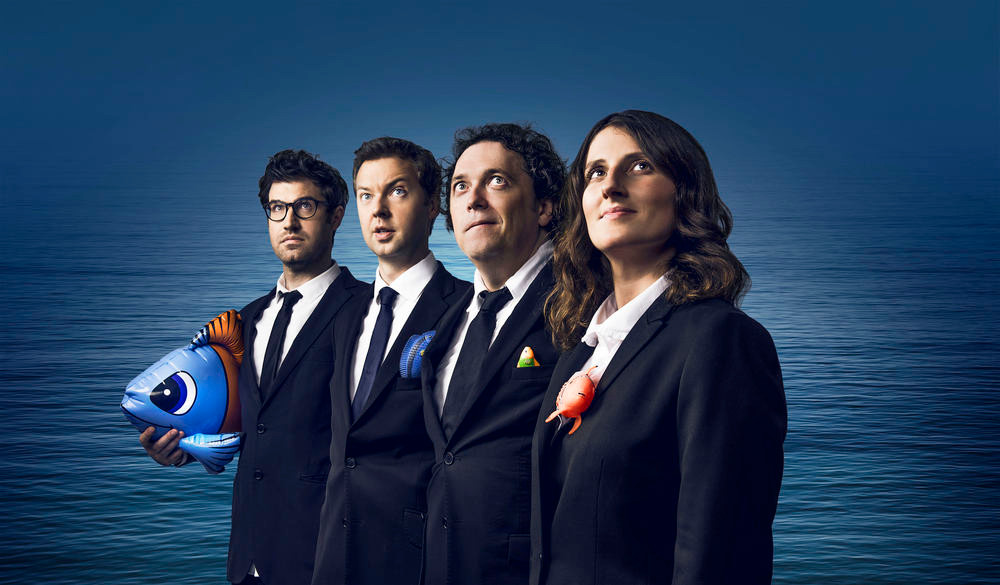
In the vast ocean of existence, we often find ourselves swimming in a sea of perceptions and assumptions. Among these, one notion that challenges our understanding is the intriguing statement: “There’s no such thing as fish.” At first glance, it might sound absurd or paradoxical. After all, fish are undeniable creatures that inhabit the waters of our planet. However, delving deeper into this statement unveils profound insights into the nature of reality, language, and human perception.
To comprehend the essence of this assertion, one must explore its origins. The phrase gained prominence through the podcast “No Such Thing as a Fish,” created by the researchers behind the British TV panel show “QI” (Quite Interesting). Contrary to its literal interpretation, the podcast ventures into various fascinating and obscure facts, often straying far from the aquatic realm.
At its core, “There’s no such thing as fish” challenges our preconceived notions and the limitations of language. It underscores the arbitrary nature of classifications and reminds us of the inherent subjectivity in our understanding of the world. What we perceive as “fish” is merely a construct, a label we use to categorize certain aquatic organisms based on shared characteristics. However, this categorization is not absolute or universal.
Consider the diversity within the category of “fish.” From tiny seahorses to massive whale sharks, the variations are vast, encompassing a multitude of species with distinct traits and evolutionary histories. Furthermore, the boundary between fish and other marine creatures is not always clear-cut. Organisms like dolphins and whales, though not classified as fish, share aquatic habitats and exhibit fish-like features.
Moreover, the concept of fish is culturally contingent. What one culture identifies as a fish may differ from another’s classification. Indigenous knowledge systems often have unique categorizations that reflect their intimate connection with the natural world. This cultural relativity highlights the fluidity of our perceptions and challenges the notion of a fixed reality.
Beyond the realm of biology, the statement “There’s no such thing as fish” extends its reach into philosophy and linguistics. It invites us to question the limitations of language in capturing the richness of existence. Words serve as linguistic containers, attempting to encapsulate the complexity of the world within finite constructs. However, these constructs inevitably fall short, unable to fully capture the intricacies and nuances of reality.
In a similar vein, the statement prompts introspection into the nature of identity and existence. Just as “fish” represents a label imposed upon aquatic organisms, so too do labels shape our understanding of ourselves and others. We are more than the sum of our classifications, transcending arbitrary categories imposed by society. Embracing the fluidity and ambiguity of existence allows us to transcend rigid boundaries and embrace the interconnectedness of all life.
Conclusion
There’s no such thing as fish serves as a thought-provoking reminder of the multifaceted nature of reality. Beyond its literal interpretation lies a profound exploration of perception, language, and cultural context. By questioning our assumptions and embracing the inherent ambiguity of existence, we embark on a journey of discovery that transcends the confines of conventional wisdom. In the ever-expanding ocean of knowledge, let us dive deeper, guided by curiosity and an openness to the complexities that defy simple classification.